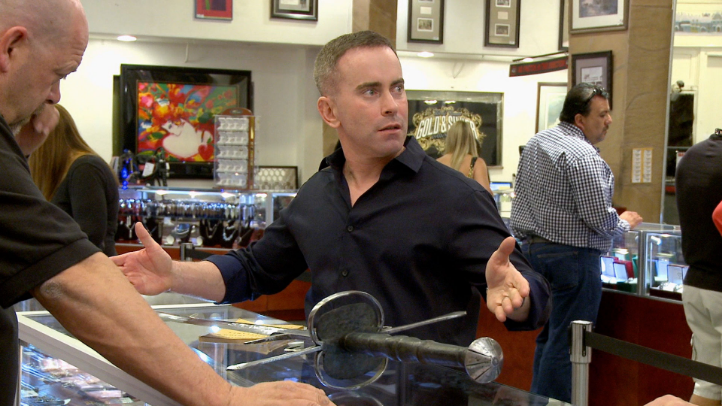Pawnshops have a long history of serving as trustworthy sources for quick cash and unusual finds. Getting the best deal is crucial whether you’re looking to pawn an item or buy something from their stock. Understanding the dynamics of a pawnshop transaction and engaging in negotiation can have a big impact on how it turns out. We’ll look at practical tactics and advice in this blog post on how to negotiate the best price at a pawnshop.

I. Research and Preparation
1. Research Market Values
Do some market research on the item you intend to pawn or buy before going to a pawnshop. You will then be able to negotiate with assurance because you will have a realistic understanding of its value. Reputable dealers, auction houses, and online marketplaces can all offer insightful information about current market rates and tendencies.
2. Gather Information about the Pawnshop
Examine the pawnshop you intend to go to. Verify their reputation, client testimonials, and the merchandise categories they specialize in. You can handle the negotiation process more skillfully if you are aware of their policies, loan terms, and pricing tactics.
II. Pawning Items
1. Assess the Item’s Value
When determining the worth of the item you want to pawn, be impartial. Take into account its state, age, brand, rarity, and market demand. You can set realistic expectations and negotiate effectively if you have a realistic understanding of what it is worth.
2. Highlight the Item’s Desirable Features
Make sure to draw attention to any special or appealing qualities your item has when you present it to the pawnbroker. Brand recognition, special edition status, and any supplemental paperwork, such as certificates of authenticity, can all be considered. The pawnbroker’s interest and estimation of the value of the item may rise if these features are emphasized.
3. Negotiate the Loan Terms
To get the best deal when pawning an item, the loan terms must be negotiated. The interest rate, fees, and repayment period should be discussed and agreed upon. Be prepared to bargain for a reasonable interest rate that fits your budgetary constraints and industry standards.
III. Purchasing Items
1. Conduct a Thorough Inspection
Examine the item carefully before buying it from a pawnshop. Check the item carefully for any damage, wear, or missing parts. Verify its operation and, if necessary, ask for a demonstration. The better prepared you are to haggle over the price, the better position you’ll be in regarding the item’s condition.
2. Research Comparable Prices
Look up similar prices for the item you want to buy. To find out the typical selling price, search online marketplaces, auction websites, and neighborhood markets. With this knowledge, you can use the item’s condition, age, and market demand to bargain for a reasonable price.
3. Consider the Item’s Long-Term Value
Consider the item’s value over the long term if you’re interested. Will it retain its value over time, or is a significant depreciation likely? Your negotiating tactics and willingness to pay a higher price can be influenced by being aware of the item’s potential for appreciation or depreciation.
IV. General Negotiation Tips
1. Be Polite and Professional
Throughout the negotiation, act with courtesy and professionalism. Gaining the pawnbroker’s trust and developing a good working relationship can increase your chances of negotiating a better deal.
2. Start with a Reasonable Offer
When negotiating, start with a fair offer that is just a little bit less than the amount you are willing to spend. This leaves room for a counteroffer from the pawnbroker while also allowing for further discussion.
3. Be Willing to Walk Away
Be ready to leave if the pawnshop’s offer falls short of your standards. This demonstrates that you are not in a rush to complete the transaction and might persuade the pawnbroker to make a more advantageous counteroffer.
4. Consider Bundling or Package Deals
If you’re interested in several things, you might want to suggest a package or bundle deal. Combining items or buying in bulk can open up more negotiation options and possibly result in a lower final price.
5. Read and Understand the Terms and Conditions
Read the terms and conditions of any transaction thoroughly before committing to it. Pay close attention to any guarantees, return guidelines, or additional costs that might be necessary. Before making the purchase, address any ambiguities or worries.
V. Building a Relationship with the Pawnshop
1. Establish Trust and Repeat Business
In the long run, it can be advantageous for you to establish a good rapport with the pawnshop. Establishing trust and proving your dependability may increase the likelihood that you’ll get good terms and individualized service in subsequent transactions. Think about fostering a relationship with the pawnbroker through ongoing communication and prompt repayment.
2. Stay Updated on the Inventory
Keep up with new arrivals and the inventory at the pawn shop. visit their website frequently, sign up for their newsletter, or follow them on social media. This gives you the chance to be among the first to learn about special offers or unusual goods, giving you an edge during negotiations.
3. Explore Membership Programs or Loyalty Rewards
Find out if the pawnshop offers any loyalty rewards or membership programs. Some pawnshops reward their devoted clients with extra privileges or discounts. You can gain access to special benefits and possibly get better deals by signing up for or taking part in loyalty programs.
VI. Final Tips for Getting the Best Deal
1. Timing is Key
To get the best deal at a pawnshop, timing can be very important. Visit the pawnshop when business is slow because they might be more willing to bargain. Additionally, you can improve your chances of finding deals by planning your visit to coincide with seasonal or holiday sales events.
2. Be Knowledgeable and Confident
Show off your expertise and self-assurance during negotiations. You’ll be better able to negotiate if you do your research on the market, are aware of the item’s value, and are aware of your financial limitations. You have a better chance of getting a better deal when you appear knowledgeable and confident.
3. Be Flexible and Open to Compromises
While it’s important to have clear expectations, be adaptable and willing to make concessions when negotiating. You can create a favorable environment for fruitful negotiations and possibly get a better result by demonstrating your willingness to find a solution that benefits both parties.
Conclusion
To get the best deal at a pawnshop, one must do their homework, plan ahead, negotiate skillfully, and establish a trusting relationship. Understanding market values, performing thorough inspections, and negotiating with confidence is essential whether you are pawning an item or buying from the stock of a pawnshop. Additionally, you may have an advantage if you establish a good rapport with the pawnshop and keep up with their inventory. When negotiating, keep in mind to be knowledgeable, assured, and flexible. You can improve your chances of getting the best deal at a pawnshop and having a positive experience by using these strategies and tips.



